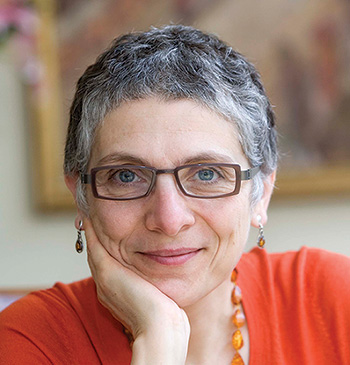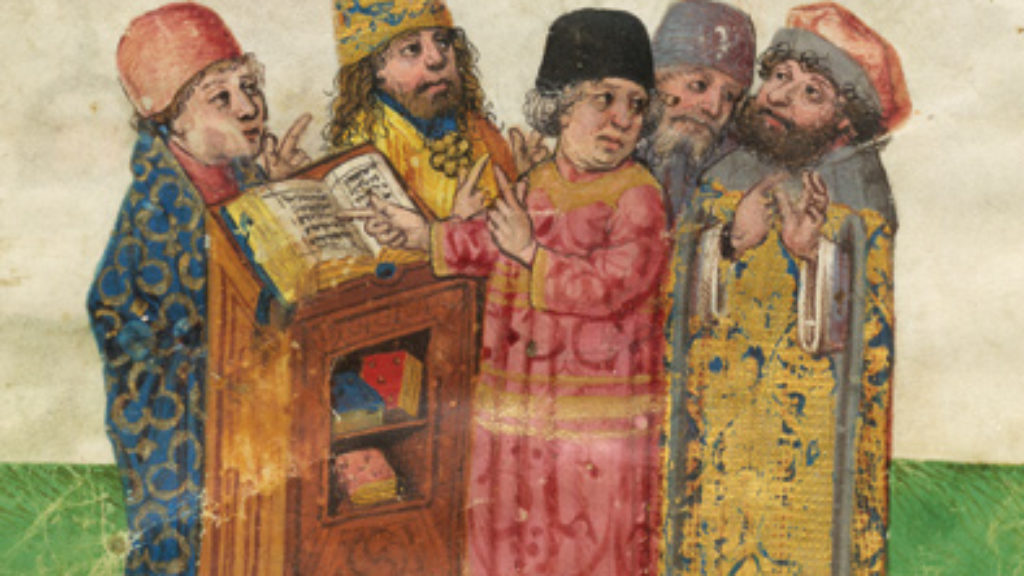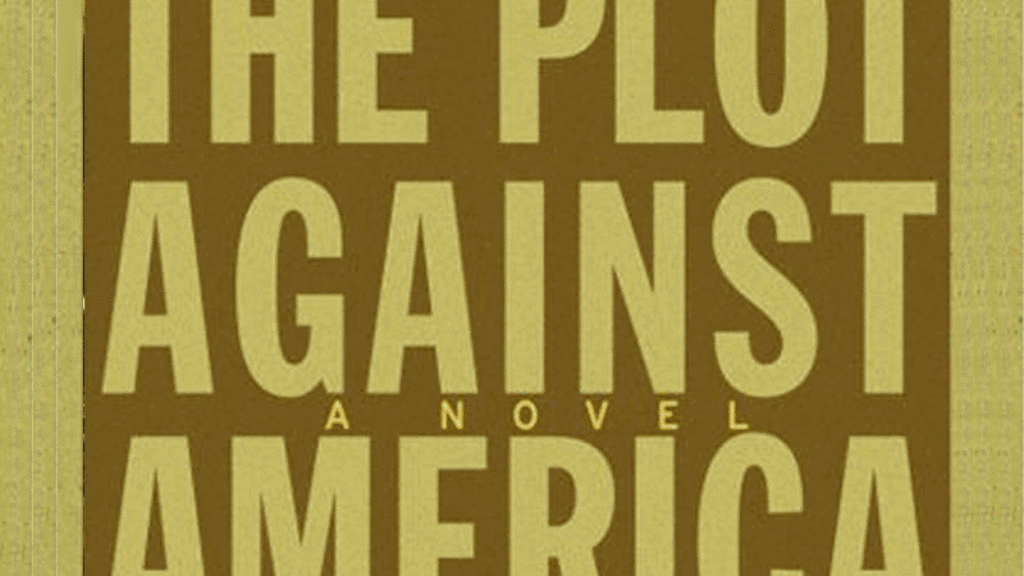Freethinker
Melanie Phillips begins her memoir with an almost poetic third-person narrative, describing a Jewish home in postwar Britain beset with sorrow and socioeconomic woes. With a shifting narrative voice midchapter, the reader is thrown into what appears to be a dysfunctional family, with a young Melanie in the center, trying to make sense of a grown-up world where far too much is left unspoken. Her mother is both frail and all-powerful, seemingly controlling the family through her moods, wants, and ailments, and, with his mix of passivity and weakness, the father becomes a supporting actor in the drama of his very gifted child. Early on in the book, Phillips describes how her father is torn between his mother and wife, rushing between both homes to care for the women who constantly demand his attention. The grandmother, or Booba, as she is called, was a source of contention between Phillips’s parents, and Phillips recalls being forced to go visit, every single week, sitting glued to the TV while hearing her father being chastised in the other room.
My father might shout at Booba, but he always, always gave in. How desperately I wanted him to stand his ground, give her an ultimatum, turn his back upon such unnatural bullying and at last put his wife, my mother rather than his own, first in his life. But he never did.
As much as Phillips loved her father, and she clearly did, she was frustrated with and disappointed in his weakness. “To my childish eyes,” Phillips writes, “fathers throughout my family just weren’t there.” The weekly visits with Booba, during which she saw her father lose every battle, seemed to cement the image of weak-willed men who fail to show up when it matters and who, more importantly, fail to protect their children from the responsibilities of the adult world. Seeing her father’s inability to stand up to bullying, she promised to be a person who always dares to fight back.
She found her refuge at school and, as she grew older, ended up finding a home in the left-wing circles of the academic world. It is a moving depiction of a shy, almost introverted girl, fighting for acceptance by lending her considerable skills to a movement where she could finally feel some self-worth. She recalls being painfully shy yet viewed by her peers as having almost superhuman confidence.

So how did I manage to give an impression that was so totally at odds with how I actually felt? I believe it was a combination of two things: my facility with words, and a compulsion to place myself at the center of the stage in order to validate my existence by the approval of an audience.
After the depiction of her childhood, the focus of the memoir shifts to Phillips’s career and stays there for the remainder of the book, her private life, at least so far as the reader is concerned, taking a back seat to the drama of political journalism. At first, she was a perfect fit at the Guardian, rising through the ranks and feeling loved and nurtured by the adopted family with whom she would remain for 16 years. But even early on, she showed signs of dangerously independent thinking. This is the connecting thread of the whole book; Phillips seeing holes in the fabric of her ideological cosmos and then picking at it until the whole thing comes undone.
Even after having been moved from the position of news editor to policy editor at the Guardian, she did not lower her profile in fear of another demotion. Instead, she made real waves with her columns. She took on the British school system, breaking political lines by supporting the Conservative government’s proposed new national curriculum. In taking a stand for structured teaching models and daring to suggest that a new curriculum might actually help the poor and disadvantaged, she became a heretic in the eyes of the Guardian’s readership and was called out as a right-winger by her fellow journalists. She had stumbled into the culture wars by, as she herself describes it, “the staggering tactic of actually observing what was going on.” Continuing to cover social issues and the ways in which the Left had failed the working class, Phillips found herself out in the cold.
Gradually I noticed that I was no longer invited to join colleagues for lunch, no longer receiving invitations for parties at their houses, no longer getting the flow of gossipy messages and office banter that had once made me feel as if I was back in an Oxford junior common room. Now, at lunchtime, I found the office emptying around me. Few ever tried to engage me in argument. I simply became more and more isolated.
Perhaps most famously, Phillips was one of the first prominent British intellectuals to publicly tackle the issue of Muslim immigration and multiculturalism, both through her daily writing and the bestselling book Londonistan: How Britain Is Creating a Terror State Within. It is easy to forget how explosive Londonistan was when it came out in 2006; it was one of those rare books that actually deserves to be called a “bombshell.” She argued that Britain was turning a blind eye to the growing problem of Islamic extremism, thus creating “Londonistan,” a dangerous hub of Islamic militancy. Phillips’s critique of Islamism was daringly heterodox 10 years ago but has since to a large extent been proven right.
As a European, politically conservative Jew, I am one of the many writers who are thankful for her having blazed the trail and widened the corridor of opinion. But the price of a trailblazer is steep, and, given how divisive a figure she has become over the years, I can’t help but wonder if the messaging has at times overpowered the message. A question that lingers is whether or not Phillips could have made a greater impact had she used less inflammatory rhetoric. Her distinctive brand of take-no-prisoners writing has allowed some of her ideological opponents to simply write her off.
Phillips herself spends no time in self-pity over her exclusion for right- (or rather) left-thinking circles. Nonetheless, between the lines, one can occasionally see a hint of something, a sense of betrayal and heartbreak as she becomes persona non grata among many of her friends and former allies for her uncompromising views on immigration, divorce, and global warming.
The picture Phillips paints of herself is one of an anxious child, an outsider born of outsiders, struggling to be let in but too plagued by intellectual scruples and heretical doubts (not to speak of a scathing wit) to keep her place in the established intellectual aristocracy. Although Guardian Angel covers her entire career and does so well, I was left wanting to know more about the family with which she begins her memoir. It is only in the initial chapters that the reader is given a glimpse of her mother’s mental and physical frailty, her father’s present absence, and her own vulnerability as a child left to put out the constant fires of her early life. In these years, she seems never to have been her own keeper, but always one to her loved ones: protecting them, propping them up, accepting responsibility for their well-being.
It is heartbreaking to read about her first, glorious step toward adulthood—acceptance at and departure to Oxford—being tainted by guilt and worry for how her mother would manage her absence.
I knew it was a crisis. I was leaving her bereft. I couldn’t do that. And so I slipped into a pattern of seeing her every two weeks. . . . Physically in Oxford, I mentally never left home.
In such passages, the formidable polemicist becomes truly relatable. Occasionally one wishes that she had turned her sharp analytical mind to those family relationships and explored the connections between her private experiences and political stances a bit more, but after closing the door on her family life, the book jumps head-first into her career. It’s a furious ride, in every sense of the word, following her journey from the warmth of the Guardian to the freezing cold of journalistic ostracism as she stubbornly describes the reality she sees outside her window.
There is also another side-effect of enduring so much abuse. Eventually, the insults start to lose their power. Once you have been called reactionary, right-wing, far-right, extreme-right, ultra-right, fascist, racist, Nazi, Holocaust-shroud-waver, warmonger, insane, and extreme right-wing insane racist warmongering Holocaust-shroud-waving Jew, what else can they throw at you?
It is as if she is back where she is most comfortable, after having been admitted to the rooms where her parents were never welcome, and then lost her privileges. As with the dissident prophet Jeremiah, her detractors may have broken the yoke of wood but forged a yoke of iron.
This brings us to the matter of Phillips’s developing sense of her Jewishness. When she saw anti-Semitism creeping into the inner sanctums of the self-righteous political Left, she was drawn closer to both Israel and her own developing sense of Judaism and Jewish identity. The descriptions of her battles against the anti-Israel bias in the media are some of the best and most passionate pieces of writing in this book. At a time when anti-Semitism has become commonplace in the British Labour Party and, indeed, the country, these passages are both timely and frightening. In recounting her experiences of being accused of disloyalty, of being less than British and somehow foreign, Phillips exposes the eerily cyclical nature of anti-Semitism.
As I finished reading about Phillips’s journey, I was left thinking that, had she stayed within the leftist safe-space, she would now be lauded as a feminist icon. In fact, since she was brave enough to venture out of that ideological comfort zone, she deserves that honor even more. Perhaps my slight frustration with the lack of personal detail is due to the author’s unwillingness to play into my expectations of what the autobiography of such a person should be. But, characteristically, she tells the story on her own terms.
Suggested Reading
Karl Marx, the Jews of Jerusalem, and UNESCO
Some revolutionary quotations from Marx and the People's Republic of China.

The People of the Book – Since When?
A new book seeks to overturn everything we know about the history of the Talmud.
The Hasidim: An Underground History
David Assaf introduces us to Hasidic Rebbes who ride into small towns and take over. (If cowboys were Hasidim, this would be Deadwood.)

When Everything Matters
Bellow on Roth on TV.
Comments
You must log in to comment Log In